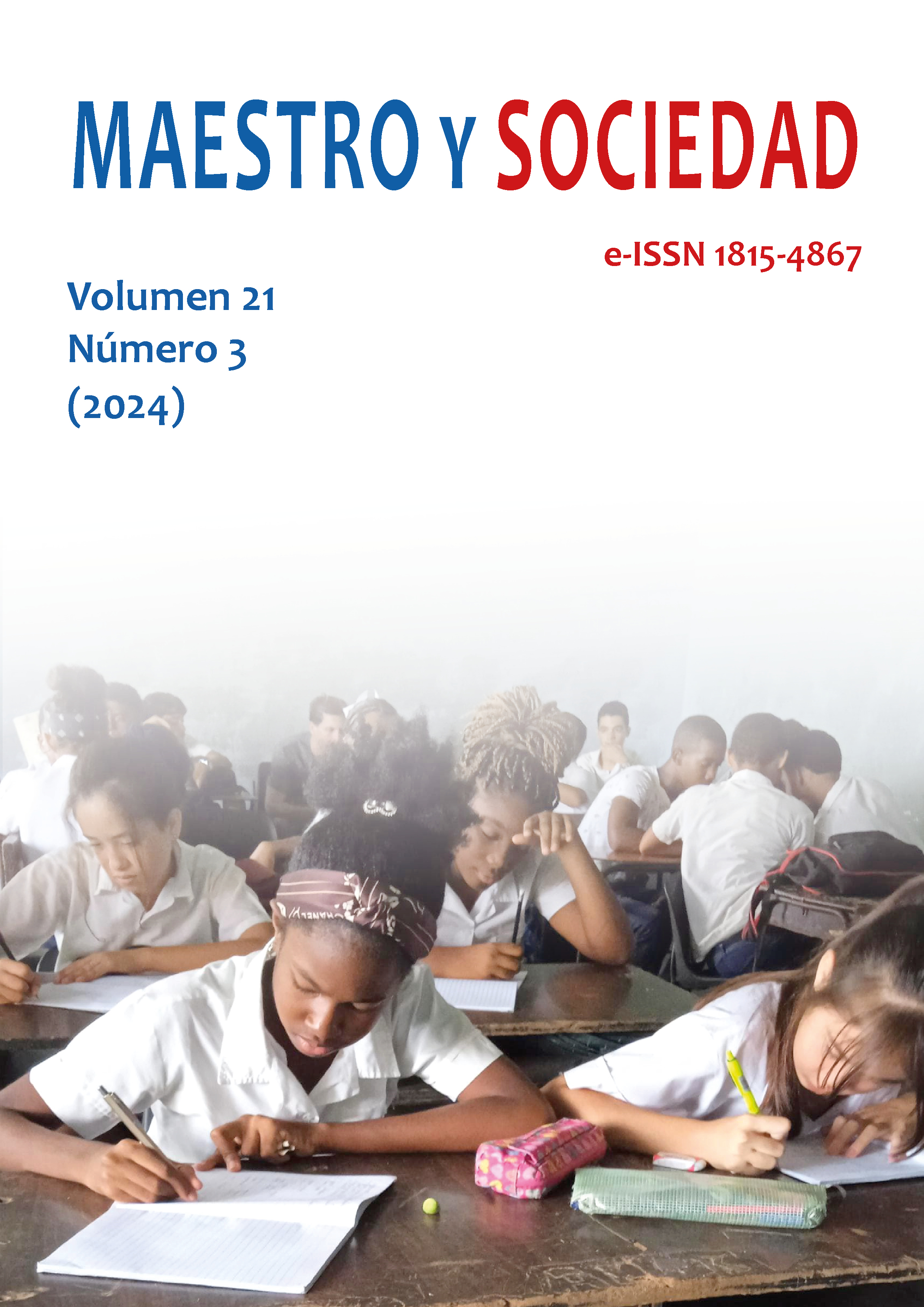Pedagogic innovation in the process of teaching learning with digital means: Educational Unit October Nine, Guayaquil
Keywords:
Digital strategy, learning, digital tools, innovationAbstract
Introduction: This study arises from the need to verify the changes that exist in the educational institution due to the impact of digital media on the teaching-learning process, which requires pedagogical innovations that must be applied flexibly for the acquisition of knowledge, through the use of educational digital tools that are easily accessible, allowing them to be applied synchronously and asynchronously, and facilitating knowledge. At the Nueve de Octubre Educational Unit in Guayaquil, in the evening shift, there is a need to continue including strategies that include digital tools to bring students closer to the computer reality of the environment. Materials and methods: A mixed research approach was applied, combining qualitative and quantitative methods, for which it was necessary to use various sources of information as a result of academic research, publications, conferences and educational practices. In this research, interviews with teachers and a survey of students from the institution were applied as empirical methods in order to obtain data that allow understanding the problem investigated in the Educational Unit. Results: As a result, methodological guidelines are proposed for pedagogical innovation in the teaching-learning process with digital media. Likewise, this research revealed the limited level of knowledge that teachers have about the use of digital tools. Therefore, it is essential that the Nueve de Octubre educational institution implement courses or training programs that promote and reinforce the proper use of these resources, which will facilitate the development of new digital skills among teachers. Discussion: From pedagogical innovation through digital applications or platforms, actions are promoted that can lead to meaningful learning. Teachers must include digital strategies based on considering the teacher's pedagogical practice in relation to the problem; as students have new learning challenges in these digital environments. Conclusions: It is important to incorporate into the planning process spaces for socialization, feedback and monitoring in academic learning environments, which promote the implementation of ICTs that benefit all learning actors.
References
Arancibia, H., Castillo, P. & Saldaña, J. (2018). Innovación Educativa: perspectivas y desafíos. Universidad de Valparaíso. https://historia.uv.cl/attachments/article/95/ARANCIBIA,%20CASTILLO%20y%20SALDA%C3%91A_Innovacion%20educativa_2018.pdf
Ecuador. (2011). Ley Orgánica de Educación Intercultural. Registro Oficial No. 417 de 31 de marzo de 2011 https://www.educacion.gob.ec
Educación 2020. (2018). La innovación pedagógica como estrategia para avanzar a una educación más inclusiva. http://educacion2020.cl/noticias/la-innovacion-pedagogica-como-estrategia-para-avanzar-a-una-educacion-mas-inclusiva/
Estupiñan, J.; Carpio, D.; Verdesoto, J. y Romero, V. (2016). Participación de los estudiantes en el proceso de enseñanza-aprendizaje en la Educación Superior de Ecuador. Magazine de las Ciencias .1 (2) 35 – 50 https://revistas.utb.edu.ec/index.php/magazine/article/view/50
García Aretio, L. (23/03/2020). Los medios y recursos didácticos. Contextos universitarios mediados. (ISSN: 2340-552X), https://aretio.hypotheses.org/3232.
González, F., & Carlos, I. (2021). Los objetos de aprendizaje digitales en el proceso de enseñanza-aprendizaje de la escuela multigrado. Revista EduSol, 21(75), 210–217. http://scielo.sld.cu/scielo.php?script=sci_arttext&pid=S1729-80912021000200210Neira
Klimenco, O. (2008). La creatividad como un desafío para la educación del siglo XXI. Educación y Educadores, 11(2), 191-210.
Maraza Quispe, B. et al. (2019). Análisis de las herramientas de gamificación online Kahoot y Quizizz. Referencias Pedagógicas, 7(2), 339-362. http://rrp.cujae.edu.cu/index.php/rrp/article/view/193/216
Margalef y Arenas (2006). ¿Qué entendemos por innovación educativa? A propósito del desarrollo curricular. Formación de Profesores, Viña del Mar, (47), 13-31.
Molina, J. P., Valencia, A., & Gómez, F. (2016). Innovación docente en educación superior: Edublogs, evaluación formativa y aprendizaje colaborativo. Profesorado. Revista de Currículum y Formación de Profesorado, 20(2), 432-450.
Neira, M. & Pulgarin, E. (2021). La Innovación Educativa como herramienta pedagógica en el proceso de enseñanza-aprendizaje en tiempos de pandemia de la Unidad Educativa Fiscal José Jesús Ocampo Salazar. 593 Digital Publisher CEIT, 6(1), 96-120. https://doi.org/10.33386/593dp.2021.1.425
Osorio, L. A., Vidanovic, M. A. & Finol De Franco, P. M. (2021). Elementos del proceso de enseñanza – aprendizaje y su interacción en el ámbito educativo. Revista Qualitas, 23(23), 001 - 011. https://doi.org/10.55867/qual23.01
Torres-Moreno, E., et al. (2021). El proceso de enseñanza-aprendizaje: lógica, dinámica y estimulación del aprendizaje. Revista Santiago (157), 86-100. http://www.santiago.uo.edu.cu
UNESCO. (2019). Thesaurus. Vocabulary information. http://vocabularies.unesco.org/thesaurus
Velancia, D. A. (2010). Innovación en procesos pedagógicos de enseñanza aprendizaje del componente tecnológico en proyectos arquitectónicos. http://www.academia.edu
Published
How to Cite
Issue
Section
License
Copyright (c) 2024 Marcelo Antonio Brocel Franco, Ana Julia Rodríguez Asencio, Francisco Antonio de León Cano, Elizabeth Esther Vergel De Salazar

This work is licensed under a Creative Commons Attribution-NonCommercial-NoDerivatives 4.0 International License.
This journal provides immediate open access to its content, based on the principle that offering the public free access to research helps a greater global exchange of knowledge. Each author is responsible for the content of each of their articles.



























 Universidad de Oriente
Universidad de Oriente 